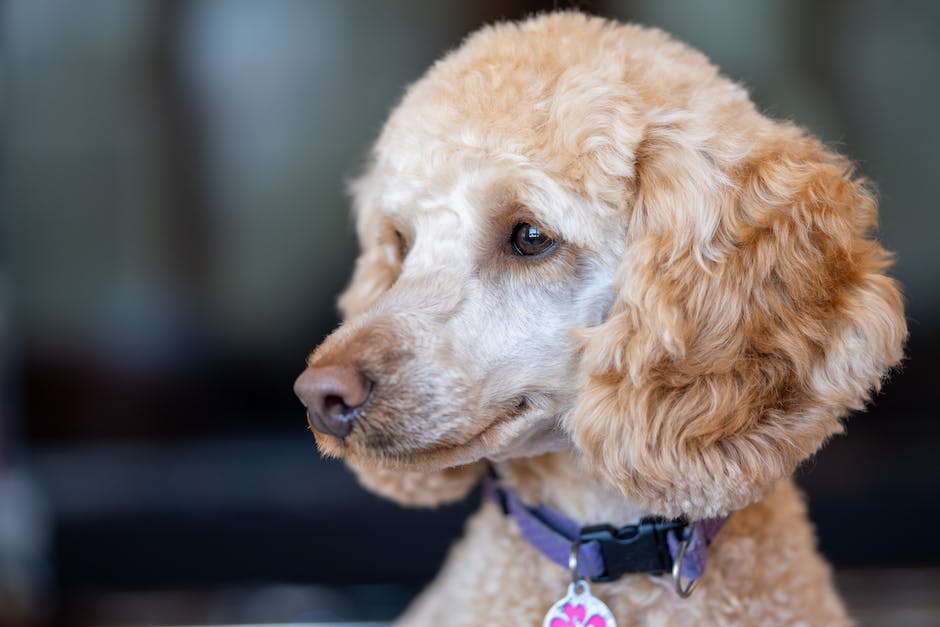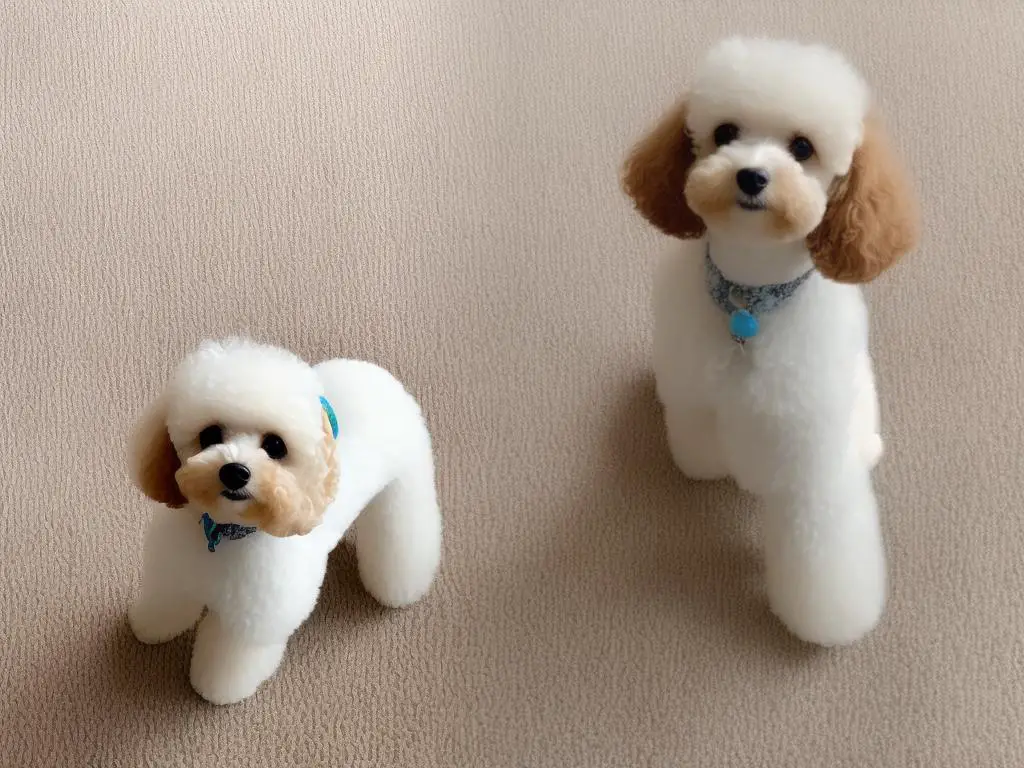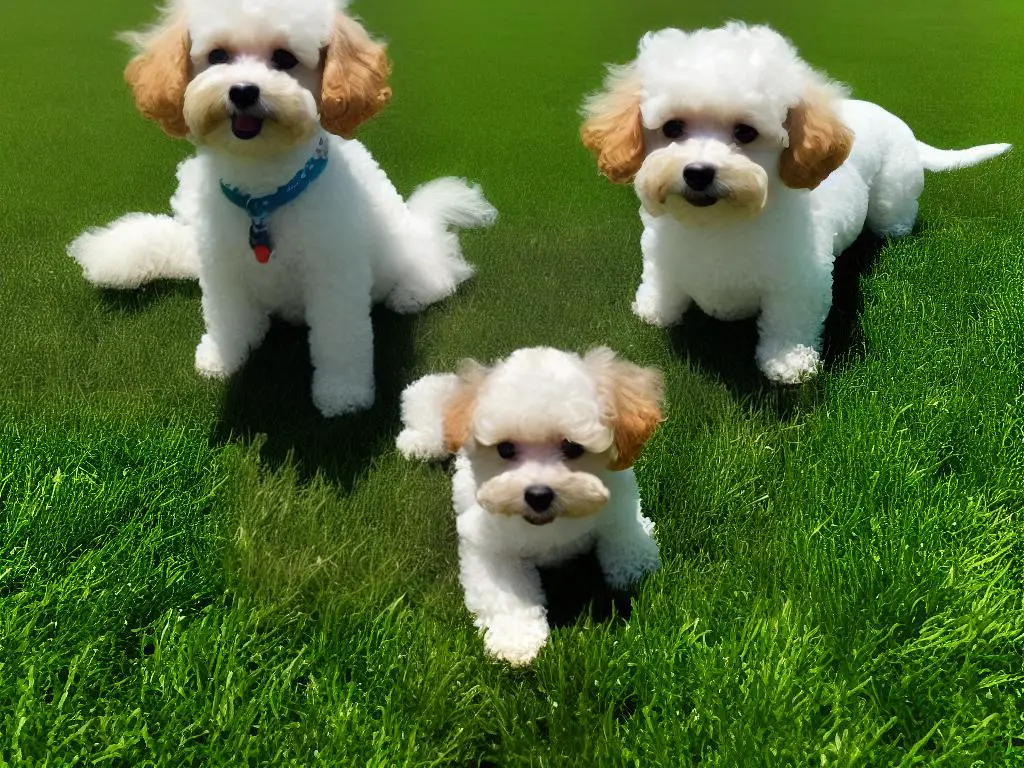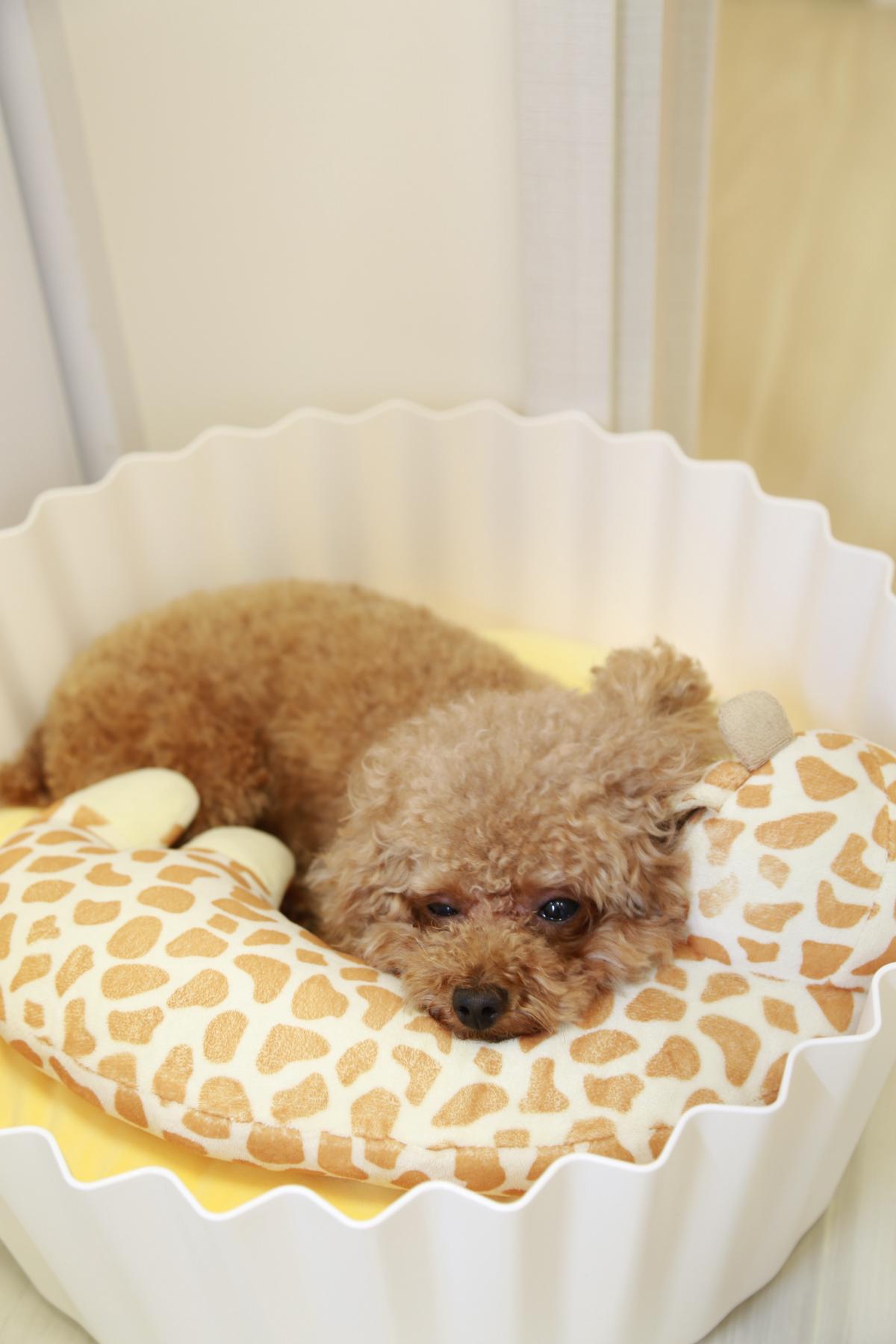Understanding Teacup Poodle Temperament: A Detailed Guide
The teacup poodle is an intelligent and unique breed of dog, known for its adaptive traits and dynamic temperament. Understanding its nature can offer helpful insights into its behavior, needs, and responses – factors that are important for pet owners or enthusiasts to know. This starts with understanding the concept of dog temperament. Grounded in biology and behavior, temperament is a crucial element in choosing a dog breed and forms the basis of our discussion. We will then dive into the temperament of teacup poodles, exploring the traits that distinguish them from other breeds. Examining a variety of influencing factors, such as upbringing, environment and early socialization, will play a large role in our exploration. With an understanding of these elements, we can better manage and train our beloved teacup poodles, ultimately leading them to live happier and healthier lives.
Understanding Dog Temperament
Understanding Dog Temperament: A Biological and Behavioral Perspective
Dog temperament is a fundamental characteristic that determines the behavior, personality, and overall disposition of a dog. It is a combination of inherited traits from their genetic lineage and the environment they grow up in. The understanding of dog temperament is a critical aspect for potential dog owners when selecting a breed, particularly as this aspect significantly influences the dog’s behavior around humans and other animals.
Biologically, temperament is primarily influenced by a dog’s genetic composition. Dogs, like humans, inherit genes from their parents, which shape their physical characteristics and, to some extent, their behaviors. For example, retrievers are genetically programmed to retrieve things, while terriers have high prey-drive. However, genetic predisposition is just part of the equation. Environmental factors also influence temperament.
Therefore, a dog’s environment, particularly during its formative months, plays an integral role in shaping its temperament. Factors such as early socialization, training, and experiences can greatly affect a dog’s temperament. A dog that has been adequately socialized during its puppyhood is likely to be more confident and less anxious as an adult.
In terms of behavior, temperament determines how a dog approaches and reacts to various situations. For instance, a dog with an aggressive temperament may react violently to unfamiliar situations or individuals, whereas a dog with a more mellow temperament may be more tolerant of new experiences and people.
Unveiling the Teacup Poodle Temperament
Peering into the temperament of a teacup poodle reveals a fascinating mix of intelligence, vivacity, and charm, catching the attention of potential owners. Enriched with deep bonds towards their human companions, teacup poodles exhibit sensitivity towards their owners’ emotions, distinguishing them as outstanding companion dogs.
Their keen intelligence partnered with an inherent yearning to please their owners makes training relatively smooth. However, occasional stubbornness warrants consistent and gentle disciplining. Their agile minds need substantial mental stimulation for fulfillment.
Teacup Poodles typically exhibit sociability but can sometimes display reservation around unknown persons, necessitating early socialization for balanced character development. They hold potential to adapt well with other pets, albeit with careful introduction to larger dogs due to their petite physique.
Harsh training tactics are a counterproductive approach for their sensitive disposition, instead, they respond favorably to positive reinforcement methods. Notably, they can exhibit signs of separation anxiety, thereby necessitating a nurturing owner who is capable of providing ample companionship.
To conclude, adopting a teacup poodle requires a precise understanding of the breed’s temperament, needing an engaging, nurturing, and steady environment to flourish. It’s crucial to weigh both the genetic and environmental components affecting a dog’s demeanor to secure compatibility with the lifestyle and expectations of the potential owners.

Detailed Analysis of Teacup Poodle Temperament
Peep into the World of Teacup Poodle Temperament: A Miniature Canine Breed with Magnified Charm
Teacup Poodles, while small in size, do not disappoint when it comes to personality. This breed echoes the intelligence, enthusiasm, and sociability of Standard Poodles, all encased in a pocket-sized package. Of course, their reduced size necessitates unique considerations, particularly tailored to their specific temperamental and physical needs.
Unbound Intellect and Vitality: Tiny yet Mighty
Teacup Poodles are staged second only to Border Collies for their intelligence in the canine world. Being gifted learners, they boast of quickly grasping and executing commands impressively. They maintain an eagerness for mental activities, which can range from interactive toys, training drills, to brain-testing puzzles. However, their active minds demand continuous engagement to prevent them from resorting to undesirable behavior out of monotony.
For petite dogs, Teacup Poodles showcase surprising energy levels. They flourish when indulged in significant physical activities, their agility serving them well in small dog sporting contests such as obedience, agility, and rally trials. For days when such events are off the cards, a brisk walk or indoor playtime meets their exercise needs perfectly.
Sociability: The Irresistible Charm of Teacup Poodles
Teacup Poodles brim with sociability. They love human companionship and often form strong bonds with their family members. They’re affectionate and love to cuddle. Sometimes, they express this love by following their owners from room to room. They can also adapt well to different kinds of living environments, be it a city apartment or a house in the suburbs.
Teacup Poodles have the potential to be friendly with children and other pets, but caution needs to be exercised due to their delicate nature. They can be vulnerable to unintentional mishandling which could result in serious injury. Therefore, interactions between a Teacup Poodle and young children or bigger pets should always be supervised.
Sensitivity: The Emotionally Responsive Teacup Poodle
Traits of temperament in Teacup Poodles aren’t just physical; these puppies display emotional sensitivity too. Teacup Poodles are known for their intuitive understanding of their owners’ emotions. They can often sense their owner’s mood and respond accordingly. In fact, they can get upset if there’s tension in the home. This extreme sensitivity can even make them prone to separation anxiety if left alone for long periods.
Exploring the Unique Traits of Teacup Poodles
Teacup Poodles share the same key traits that their larger poodle relatives are known for—intelligence, energy, social skills, and emotional sensitivity—only these are shaped uniquely due to their smaller size. It’s crucial to remember the importance of physical care and mental stimulation in maintaining a healthy Teacup Poodle, as this not only positively impacts their physical wellness, but also helps to prevent behavioural issues that result from boredom or neglect.
It is true that these adorable lapdogs form intense bonds with their human guardians, and it’s equally important to note that due to their small size, they require a lot of attention and delicate handling. The depth of their empathy and emotional understanding makes them loyal companions, but it also makes them susceptible to stress produced by changes or tensions in their surroundings. For anyone looking to become a committed Teacup Poodle owner, it’s necessary to attend to these needs consistently in order to fully experience the rewards of their loyal and close companionship.

Factors Affecting Teacup Poodle’s Temperament
Diving Deeper into the Temperament of Teacup Poodles
Teacup Poodles are often celebrated for their endearing temperament. As a generally friendly, playful, and intelligent breed, they have earned a position of high favour among families and individuals. However, it is important to realise that the behavior and disposition of a Teacup Poodle can be greatly impacted by various external and internal factors.
Teacup Poodle’s Upbringing
The experiences puppies encounter during their early development can mold their personality as they mature. Early interactions with humans and other dogs can influence the dog’s comfort around others and may dictate their level of friendliness and sociability. Puppies that are neglected or mistreated often exhibit fear or aggression later in life.
Introducing training and discipline measures from a young age is paramount in developing a well-mannered dog. This helps keep their high intellect stimulated and their behavior in check. Teacup poodles, despite their small size, are incredibly sharp and excel in training sessions, which can positively affect their disposition and conduct.
Environmental Influence
The environment a teacup poodle is brought up in can greatly impact their temperament. A calm, stable environment contributes to a relaxed and happy pet; in contrast, chaotic or unstable environments may lead to anxious or stress-related behaviors in dogs.
Consistent routines, opportunities for play and exercise, and a safe, comfortable environment are essential for cultivating the well-balanced personality teacup poodles are known for.
Early Socialization
Socializing teacup poodles from an early age can play a crucial role in shaping their temperament. This involves presenting them with various situations, people, and animals, which helps reduce anxiety and fosters confidence.
Insufficiently socialized teacup poodles can become timid or aggressive when exposed to unfamiliar situations or creatures. Proper socialization, on the other hand, leads to adaptable, friendly, and versatile dogs.
The Influence of Intelligence on Teacup Poodle Temperament
Teacup Poodles are widely admired for their high intellect. When given suitable mental stimulation, this astute understanding notably shapes their charming temperament qualities—being sociable, playful, and easily trainable. Nonetheless, without adequate mental engagement, these clever canines might resort to misbehaving or ruinous behaviors.
Regular training, engaging puzzles and games, coupled with fun play sessions can promote a positive, balanced temperament in teacup poodles. Emphasizing patience, continuity, and authentic affection, these elements can cultivate a content, well-rounded teacup poodle possessing an excellent temperament.

Managing and Training Based on Temperament
Deciphering the Temperament of Teacup Poodles
If you aim to train a teacup poodle effectively, beginning with gaining a proper understanding of their temperament is crucial. As a breed, Teacup Poodles are strikingly intelligent canines with a sprightly, affectionate, and lively nature. They bond rapidly with their owners and prove to be admirable companions. Also, such breeds flourish under attention and need constant stimulation, including both physical and mental aspects.
On the flip side, the diminutive size of Teacup Poodles implies they can easily be intimidated or caught off guard, thereby susceptible to anxiety or nervousness. They may also turn extremely needy, which typically manifests as separation anxiety when left alone.
Interpreted from a broader perspective, their keen intellect facilitates quick learning but also entails a degree of stubbornness. This obstinacy, amalgamated with their demanding personality, might pose a challenge for novice dog owners. Nevertheless, it’s their unmatched intelligence and lively spirit that contribute to their endearing nature, making them entertaining and delightful companions.
Designing Appropriate Training Regimes
By considering the temperament of Teacup Poodles, their training regimes should be framed accordingly. Given their intelligent nature, Teacup Poodles can pick up on commands and tricks quickly. Short, consistent training sessions that are fun and rewarding are often the most effective with this breed.
Positive reinforcement techniques such as praise, treats, and toys tend to work well. Training should be kept varied and interesting to cater to their quick minds, or they can become bored and lose interest.
Socialization from an early age can aid in shaping their demeanor positively and help them get over their inherent nervous dispositions by exposing them to a variety of experiences. Patience during training is of utmost importance due to their potentially stubborn temperament.
Managing Problematic Behaviors
Problematic behaviors in Teacup Poodles can often arise from their independent and sometimes stubborn nature, stimulated by their high intelligence levels. Separation anxiety and nervousness can also lead to various issues, including excessive barking and destructive behavior.
Understanding their temperament can help manage these behaviors positively. For instance, to mitigate separation anxiety, gradual desensitization to alone time can be beneficial. Start by leaving them alone for short periods and gradually increase the duration.
These dogs crave attention and companionship. Providing them with plenty of playtime, interaction, and mental stimulation is essential in preventing destructive behavior due to boredom or anxiety.
Enhancing the Overall Well-being of the Teacup Poodle
Understanding the temperament of a Teacup Poodle is not just about training well; it’s about contributing to their overall well-being.
Due to their high energy and intelligent natures, they require regular mental and physical stimulation. This ensures they stay mentally sharp and physically healthy. The well-being of a Teacup Poodle also depends on their emotional bond with their owners. Their loving, loyal nature craves companionship and affection.
In conclusion, Teacup Poodles might be demanding and somewhat stubborn, but their intelligence, charm, and deeply affectionate nature make them wonderful friends and companions. Understanding the Teacup Poodle temperament is fundamental in training, managing behavioral issues, and overall contributing to the happiness and well-being of these captivating little dogs.

Photo by alisonpang on Unsplash
Armed with this enhanced understanding of teacup poodle temperament, pet owners and hobbyists can make more informed decisions about how to best care for, train, and nurture these remarkable dogs. Anyone privileged enough to share their lives with a teacup poodle will find immense value in understanding their behavior and emotional responsiveness, which are the crux of their unique temperament. Just as every poodle is awash with an individual spark, factors such as their upbringing and environment shape their specific temperament. By guiding them with a well-informed and appropriate training regimen based on their temperament, owners can unlock their poodle’s potential, manage any problematic behaviors and contribute significantly to their general wellbeing. By shedding light on the intriguing world of the teacup poodle temperament, we hope to enhance the relationship between these delightful dogs and their human companions.
